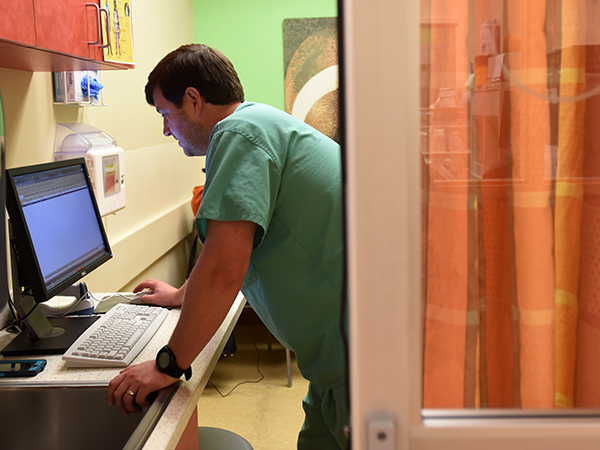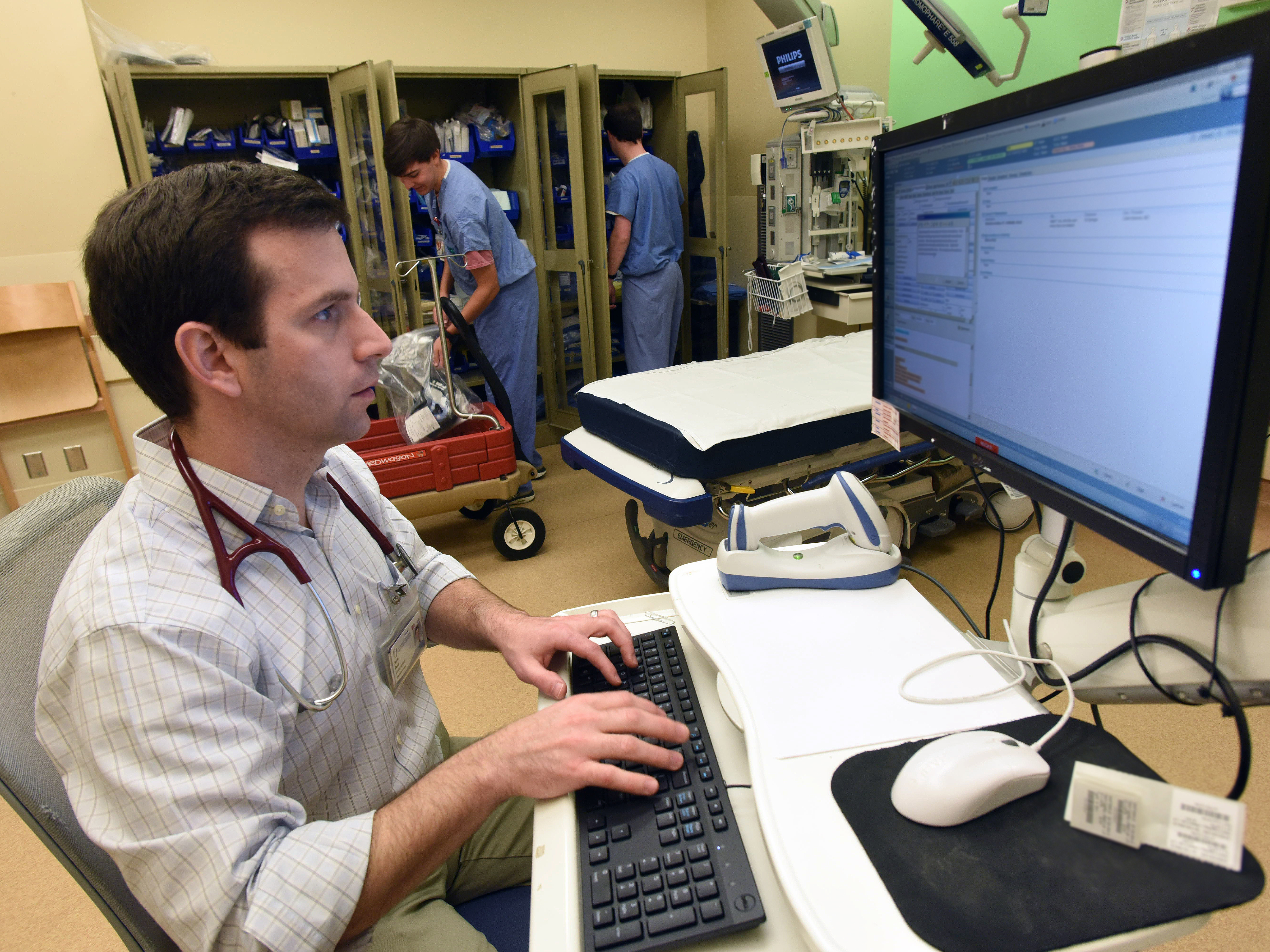UMMC access to Medicaid patient health records enhances care

Published in News Stories on December 15, 2016
The University of Mississippi Medical Center is closing in on one million patient health records exchanged with the state Division of Medicaid in a new effort that allows caregivers to make better-informed decisions by quickly reviewing a patient's expanded medical history.
Medicaid earlier this year worked with MedeAnalytics, a national health-care data analysis vendor, and Epic, the electronic medical records system used by UMMC, to take Medicaid claims data and translate it into clinical data for use at the Medical Center, the state's largest provider of care to Medicaid patients. The exchange makes for a better database defining a patient's health.

Showalter
It's especially getting heavy use from Medical Center pediatricians, said Dr. John Showalter, chief health information officer and associate professor of medicine. It allows, for example, UMMC caregivers to see if Medicaid patients have gotten their prescriptions refilled or made their primary care visits, or if they've had medical tests and when.
“It is integrated with Epic's Care Everywhere functionality and is completely transparent to the physician. Most of our doctors are using it. They just don't know it,” Showalter said.
He said he's used the exchange in treating patients, and “it was helpful. I was able to find where the patient received historic care and a better idea on their med list.”
The health records exchange plays a major role in evaluating the health of children from the state's far corners who come to UMMC for critical care, said Dr. Mary Taylor, professor of pediatric care and division chief of Pediatric Critical Care and Pediatric Cardiology.

Taylor
“We're in a unique situation in that our patients see other providers,” Taylor said. “If they're seen in an outside hospital and then referred to ours, it would be helpful for patient care to access that information quickly, rather than backtrack.
“This means we can communicate more effectively and give the best patient care,” she said. “Our next step is to broaden the education for the team here so that more people are aware of this, and how to access the records.”
When a patient shows up on Epic, Taylor said, if they've also been a Medicaid patient elsewhere, caregivers use a tab in Epic to link to the Medicaid records. “It auto links with the records from elsewhere,” Taylor said of multiple providers.
The records exchange is positively impacting all ages and socioeconomic backgrounds, said Dr. David Dzielak, the Division of Medicaid's executive director.
“Population health is a major priority for the Division of Medicaid moving forward,” he said. “This project with MedeAnalytics and UMMC lays the groundwork for us to share data that will help us get a complete picture of the health of our beneficiaries.”

Dr. Justin Davis, assistant professor of pediatric emergency medicine, examines a patient's health records in the pediatric emergency department. A new information exchange with the Division of Medicaid allows him to also access those patient records.
Mississippi Medicaid became the first agency of its kind in the nation to exchange patient medical data with a health system in real time. MedeAnalytics established and standardized an Enterprise Master Patient Index, or EMPI, for the Division of Medicaid. That's the core service that allows easy management of patient records.
Having real-time knowledge at a caregiver's fingertips improves not just care, but patient safety. It can especially be a boon to caregivers when treating people in the Emergency Department or one of the hospitals who aren't already a patient in the UMMC system.

Dzielak
The groundwork for the data exchange was laid in 2014 when MedeAnalytics studied more than a decade of medical records from 2.3 million Mississippi Medicaid beneficiaries, then took out duplicated information. MedeAnalytics' work on the integration of the clinical data with UMMC's electronic patient records is part of a three-year, $10 million contract between MedeAnalytics and Mississippi's Medicaid division.
That initial work resulted in unique medical records from more than 750,000 Medicaid and Children's Health Insurance Program patients. MedeAnalytics then worked with Medicaid to make the data accessible through a Medicaid provider portal. That paved the way for standardization of Medicaid's EMPI to support a clinical data interface with almost any health systems in the state, regardless of what electronic medical records system they use.
“From this starting platform, we can begin to tailor interventions and preventive care to improve the health of some of the most vulnerable people in our state,” Dzielak said. “The success UMMC has already shown with this project demonstrates how effective this strategy can be.”
Photos
 | High Resolution Medium Resolution Low Resolution |
 | High Resolution Medium Resolution Low Resolution |
 | updated 12/9/2016 High Resolution Medium Resolution Low Resolution |
 | High Resolution Medium Resolution Low Resolution |
 | UMMC scientists, leaders praise 21st Century Cures Act High Resolution Medium Resolution Low Resolution |


